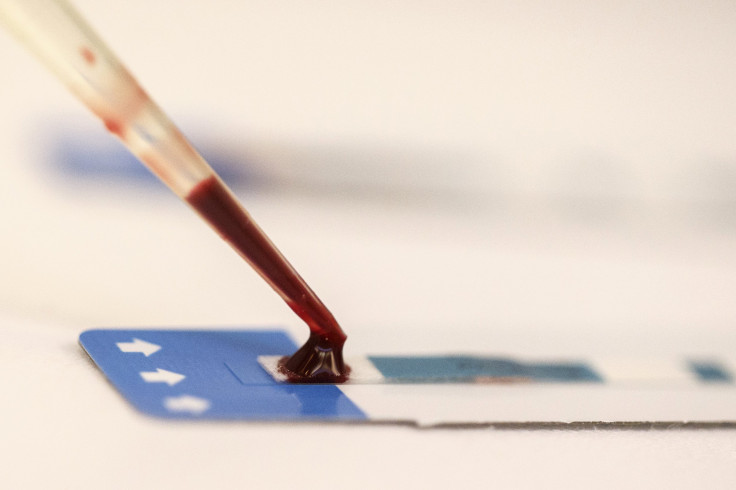One Prick Test Could Detect The Number Of Viruses A Person Has Been Exposed

In a new technology breakthrough, analysis of a single drop of blood can reveal all the current and past infections with any known human virus. The new diagnostic method is called as VirScan which seem to be an efficient alternative to currently existing serological diagnostic methods which specifically identify viruses one at a time.
According to research, every time a virus causes an acute or chronic illness, it alters the host’s immunity by generating antibodies against it. These antibodies remain in blood circulation even after the disease is cured. When the same virus tries to invade the body again, it recognises the virus and prevents it from causing the disease. By using the same principle, the scientists from Howard Hughes Medical Institute, or HHMI, have now developed a new technology that prints out the list of all the viruses that the immune system is actively fighting, along with providing a history of an individual's past infections. The test VirScan can be performed for about $25 per blood sample.
The lead researcher, Stephen Elledge, an HHMI investigator at Brigham and Women's Hospital, says, "We've developed a screening methodology to basically look back in time in people's [blood] sera and see what viruses they have experienced. Instead of testing for one individual virus at a time, which is labor intensive, we can assay all of these at once. It's one-stop shopping."
The team, including Elledge, has already screened the blood of 569 people in the United States, South Africa, Thailand and Peru by using VirScan and had reported their findings in the journal Science. The technology was developed with the help of bioengineering that involved inserting viral DNA sequences downloaded from a virus database into the DNA of bacteriophages, a special class of viruses that only infect bacteria. When an individual’s blood sample was mixed with these hybrid bacteriophages, the antibodies in the blood identified them and bound to the bacteriophage with corresponding viral proteins. Lastly, by DNA sequencing these bacteriophages, an individual’s viral history was obtained.
According to Elledge, the team was astonished with the results. He says, "In this paper alone we identified more antibody/peptide interactions to viral proteins than had been identified in the previous history of all viral exploration.” He concludes by saying that similar approach can be applied to screen for antibodies against other types of pathogenic microorganisms.
To contact the writer, email:ruchira.dhoke@gmail.com






